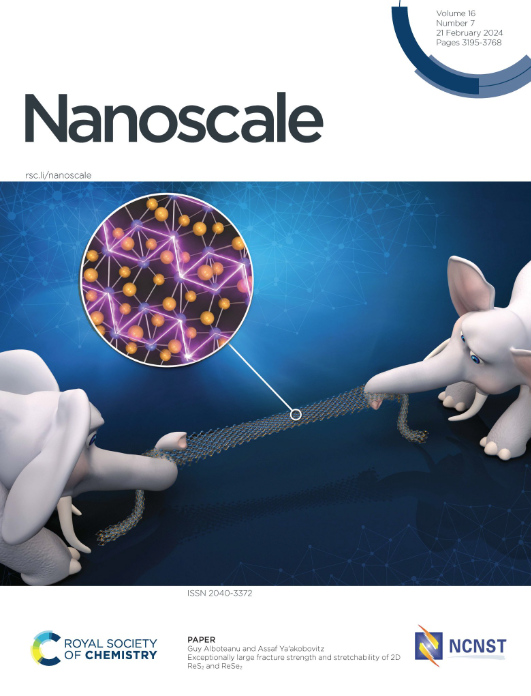Magnetic metal-organic frameworks as an antisense delivery platform and their performance in a cell-free protein expression system.
IF 5.8
3区 材料科学
Q1 CHEMISTRY, MULTIDISCIPLINARY
引用次数: 0
Abstract
Nanosized metal-organic frameworks (nMOF) have become one of the most promising classes of drug delivery vehicles due to their high load capacity, controllable drug release, and potential for transporting multiple payloads. Magnetic nMOFs, composed of a magnetic core and MOF coating, can further enhance their functionality through remote control using an external magnetic field. However, only a few studies have investigated the potential toxicity of magnetic nMOFs and the effects of their degradation on cellular machinery and the translation process. Here we show magnetic MOFs that: (i) regulate gene expression through antisense payload delivery; (ii) do not inhibit protein synthesis. We harness a cell-free protein system, CFPS, to investigate gene expression under more controlled conditions compared to traditional cell-based systems. Our findings demonstrate that magnetic nMOFs, with a magnetite core and a MIL-100(Fe) shell, do not inhibit protein translation upon degradation, and nMOFs loaded with antisense oligonucleotides can suppress protein translation by up to 87%. Furthermore, the magnetic nature of nMOFs ensured the fine-tuning of gene expression through remote control via a magnetic field without any additions to the CFPS system, thus offering an additional modality for the "on/off" control of cell-free protein synthesis. Considering the promising characteristics of nMOFs as delivery systems with minimal side effects, we anticipate their use in cutting-edge synthetic biology, biomedical applications, and the creation of the next generation of theranostic agents.磁性金属-有机框架作为反义传递平台及其在无细胞蛋白表达系统中的性能。
纳米金属有机骨架(nMOF)由于其高负载能力、药物释放可控和可运输多种有效载荷而成为最有前途的药物运载工具之一。磁性nmof由磁芯和MOF涂层组成,可以通过使用外部磁场进行远程控制来进一步增强其功能。然而,只有少数研究调查了磁性nMOFs的潜在毒性及其降解对细胞机制和翻译过程的影响。在这里,我们展示了磁性mof:(i)通过反义载荷传递调节基因表达;(ii)不抑制蛋白质合成。与传统的基于细胞的系统相比,我们利用无细胞蛋白系统CFPS在更可控的条件下研究基因表达。我们的研究结果表明,具有磁铁矿核和MIL-100(Fe)壳的磁性nMOFs在降解时不会抑制蛋白质翻译,而装载反义寡核苷酸的nMOFs可以抑制高达87%的蛋白质翻译。此外,nmof的磁性特性确保了在不添加CFPS系统的情况下,通过磁场远程控制基因表达的微调,从而为无细胞蛋白合成的“开/关”控制提供了一种额外的方式。考虑到nMOFs作为副作用最小的输送系统的前景,我们预计它们将在尖端合成生物学、生物医学应用和下一代治疗药物的创造中得到应用。
本文章由计算机程序翻译,如有差异,请以英文原文为准。
求助全文
约1分钟内获得全文
求助全文
来源期刊

Nanoscale
CHEMISTRY, MULTIDISCIPLINARY-NANOSCIENCE & NANOTECHNOLOGY
CiteScore
12.10
自引率
3.00%
发文量
1628
审稿时长
1.6 months
期刊介绍:
Nanoscale is a high-impact international journal, publishing high-quality research across nanoscience and nanotechnology. Nanoscale publishes a full mix of research articles on experimental and theoretical work, including reviews, communications, and full papers.Highly interdisciplinary, this journal appeals to scientists, researchers and professionals interested in nanoscience and nanotechnology, quantum materials and quantum technology, including the areas of physics, chemistry, biology, medicine, materials, energy/environment, information technology, detection science, healthcare and drug discovery, and electronics.
 求助内容:
求助内容: 应助结果提醒方式:
应助结果提醒方式:


